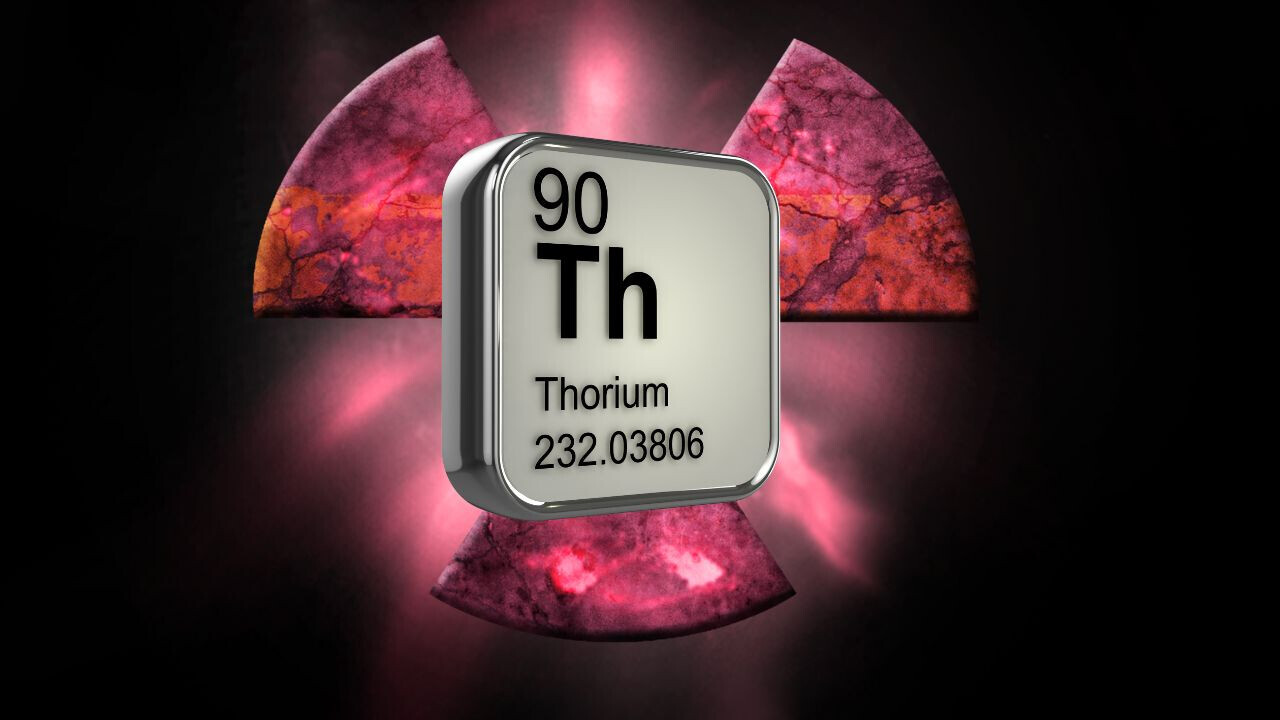
Nuclear energy is making a comeback. Across Europe, governments are pouring huge amounts of money into new power plants while startups are busily working on smaller, modular alternatives.
Most of these plants rely on uranium, the radioactive metal that fuelled the atomic age (and contributed to a couple of catastrophic meltdowns). However, Swiss startup Transmutex wants to reinvent nuclear energy using a lesser-known element called thorium.
Uranium’s forgotten cousin
Thorium is a lead-like metal that is mildly reactive, but four times more abundant than uranium and a lot safer to handle.
However, thorium not a fissile material, meaning it cannot undergo nuclear fission — the splitting of atomic nuclei which releases the energy used for electricity generation.
In a conventional nuclear power plant, heat is produced when neutrons collide with a fissionable material like uranium. As the atoms split, they release energy and more neutrons, resulting in a chain reaction which makes the nuclear power plant self-sustaining — as more atoms split it creates more heat which splits more atoms.
However, this process produces a lot of plutonium waste, which takes 300,000 years to decay and is incredibly difficult to store safely. It can also be used to make atomic bombs if it ends up in the wrong hands.

Regenerative Technology (START). Credit: Transmutex
Transmutex’s solution is to use thorium instead of uranium and combine it with a particle accelerator, which constantly feeds neutrons into the thorium atoms, creating a fission reaction.
This means that, unlike traditional reactors, the plant is incapable of sustaining a chain reaction. Once the particle accelerator is switched off the flow of neutrons is interrupted and the reactor shuts down immediately. This function would have prevented deadly accidents like the Chernobyl power plant disaster in 1986.
The radioactive decay time of thorium is just 300 years, compared to 300,000 for uranium. And according to Transmutex, its system would produce much smaller amounts of this hazardous waste. The plant could also reuse existing radioactive waste.
Powering up
Despite only having been founded in 2019, Transmutex has a long history. It all began in the 1990s when Nobel Prize-winning physicist Carlo Rubbia, then director at the European Organisation for Nuclear Research (CERN), invited Federico Carminati, a young scientist at the organisation, to participate in the development of a thorium reactor combined with a particle accelerator.
However, the idea ended up being shelved. The nuclear industry had little interest in the innovation and the problem of storing radioactive waste was not yet as pressing as it is today.
But times have changed. With the nuclear renaissance in full swing, Carminati, now with a little more experience under his belt, dusted off the old plans, teamed up with entrepreneur Franklin Servan-Schreiber and founded Transmutex.
The startup, based in Geneva and still working closely with CERN, wants to make nuclear energy safer and more sustainable.

“What if it turns out that there is an approach that addresses the fundamental problems of safety cost and long-lived waste that have hindered the traditional nuclear industry? A reactor design that is guaranteed to be safe and can reduce the radiotoxicity of long-lived waste from 300,000 years down to 300 years? This is exactly what the team at Transmutex has developed,” said Albert Wenger, a managing partner at Union Square Ventures.
The US-based VC just co-led a $23mn Series A investment in the Swiss startup. Transmutex will use the fresh funds to expand its team, with its sights set on planning and building its first facility in two to three years.
The startup said it is currently consulting with “top tier” governmental institutions worldwide to explore the possibility of forming an international coalition to accelerate the development of its first nuclear reactor.
While thorium reactors, let alone those paired with particle accelerators, are still in their infancy, there’s increased interest in their potential across the world.
China has already constructed an experimental thorium reactor at Wuwei, on the outskirts of the Gobi Desert. Other countries including the US, Germany, the Netherlands and the UK have also tested thorium as fuel in other types of nuclear reactions. And in France, researchers at the CNRSA are carrying out studies to develop a so-called Molten Salt Fast Reactor powered by thorium.
Get the TNW newsletter
Get the most important tech news in your inbox each week.





